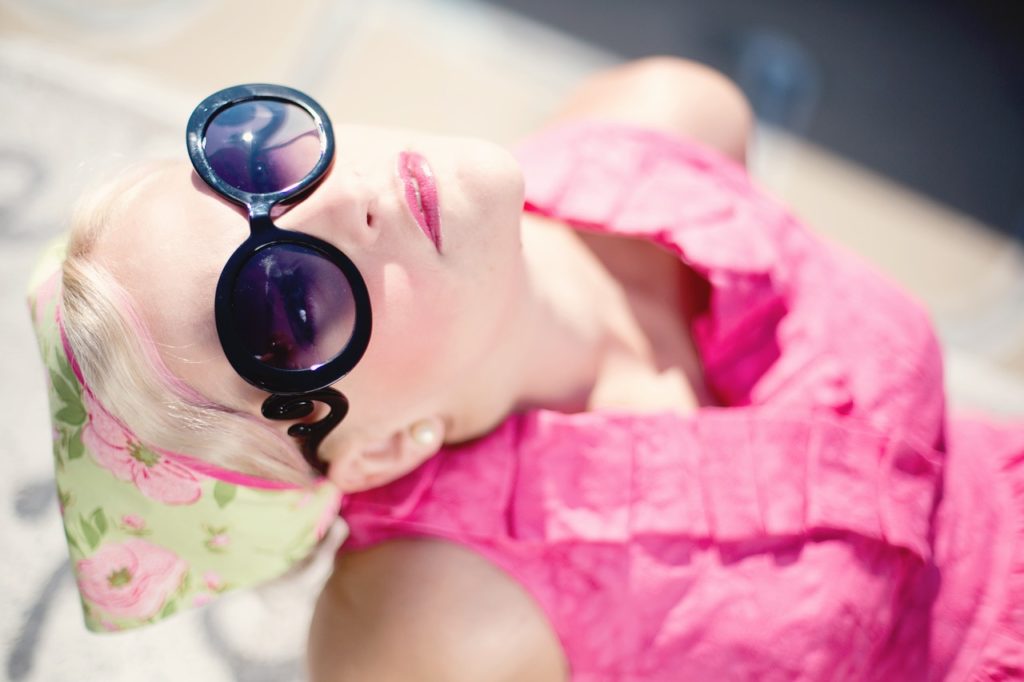- Calls to this hotline are currently being directed to Within Health, Fay or Eating Disorder Solutions
- Representatives are standing by 24/7 to help answer your questions
- All calls are confidential and HIPAA compliant
- There is no obligation or cost to call
- Eating Disorder Hope does not receive any commissions or fees dependent upon which provider you select
- Additional treatment providers are located on our directory or samhsa.gov
Navigating Body Positivity and Social Norms During Seasonal Change

Contributor: Emily Keehn, M. Ed., LPC – Dialectical Behavior Therapy Specialist at Timberline Knolls Residential Treatment Center
As temperatures warm up in the Midwest, coats and extra layers are discarded, and we eagerly welcome the feeling of the sun on our bare skin once again. Transitioning from clothes that protect us from the harsh winter elements to those that expose skin to the warm sunshine can also invite one to consider the relationship of body positivity and social norms based on dress and body image.
Social psychology research points to a correlation between self-awareness, self-perception and social interpretation, dress, and behavior. Simply, how we dress our bodies is a two-way street. How we perceive ourselves, how we dress ourselves and how we act is in some part connected to the direct and indirect information we receive from the environment.
A woman may knowingly dress in a way to send a message of body positivity and self-expression and can be told by others that her clothing is too revealing, thereby sending the message that her clothing and body positivity are inappropriate for the public eye.
It is intriguing to experience this phenomenon first hand both as a woman navigating concepts of self and as a therapist working to help women and adolescent girls work towards developing positive relationships with their bodies and self-expression. In both capacities, this inevitably includes an aspect of internal and external self-acceptance and self-awareness.
It also necessitates acknowledging a painful component of reality: the world can be harsh, judgmental and often objectifies women and their bodies. As such, this becomes a true balancing act between the celebration of the body and observing the implicit and explicit limits that are woven into our culture regarding sex appeal, provocative attire, and body shaming.
Blending my personal observations and my work as a clinician, I find it helpful to approach these opposing truths through the lens of Dialectical Behavior Therapy (DBT), along with elements of Acceptance and Commitment Therapy (ACT).
DBT is established on the concept that a dialectic is identified when two opposing truths exist at the same time. This theory encourages self-acceptance and self- expression while navigating an often invalidating environment that has its own rules regarding what is appropriate or expected.
 ACT principles reinforce focusing on taking action guided by values and commitment toward living a meaningful life that inevitably has painful moments. Acknowledging these principles provides a clearer path toward dealing with this complicated issue.
ACT principles reinforce focusing on taking action guided by values and commitment toward living a meaningful life that inevitably has painful moments. Acknowledging these principles provides a clearer path toward dealing with this complicated issue.
Perhaps we can practice becoming more aware of our bodies: our legs, arms, stomach, chins, and noses. We can also acknowledge how our clothes fit and contour our bodies.
Additionally, we must also acknowledge the fact that there will always be moments that will invalidate, shame or guilt us into thinking that women need to dress a certain way regardless of the rising temperatures outside or that the messages we want to convey differ from the ones received.
If we can embrace that our concept of self can be portrayed through the clothes we wear and observe that public perception of body image and acceptance is complicated, we can become more flexible when we acknowledge the celebrated parts and the painful parts.
About Our Sponsor:
Timberline Knolls Residential Treatment Center provides quality, holistic care to women and adolescent girls ages 12 and older. We treat individuals struggling to overcome eating disorders.
About the Author:
 Emily Keehn, M. Ed., LPC is a Dialectical Behavior Therapy Specialist at Timberline Knolls Residential Treatment Center. She earned a Bachelor’s of Arts in Psychology as well as a Graduate Certificate in Eating Disorders and Obesity from Northern Illinois University. She was awarded a Master’s of Education in Community Counseling from DePaul University.
Emily Keehn, M. Ed., LPC is a Dialectical Behavior Therapy Specialist at Timberline Knolls Residential Treatment Center. She earned a Bachelor’s of Arts in Psychology as well as a Graduate Certificate in Eating Disorders and Obesity from Northern Illinois University. She was awarded a Master’s of Education in Community Counseling from DePaul University.
The opinions and views of our guest contributors are shared to provide a broad perspective of eating disorders. These are not necessarily the views of Eating Disorder Hope, but an effort to offer a discussion of various issues by different concerned individuals.
We at Eating Disorder Hope understand that eating disorders result from a combination of environmental and genetic factors. If you or a loved one are suffering from an eating disorder, please know that there is hope for you, and seek immediate professional help.
Published on May 9, 2019.
Reviewed & Approved on April 12, 2024, by Baxter Ekern, MBA
Published on EatingDisorderHope.com


